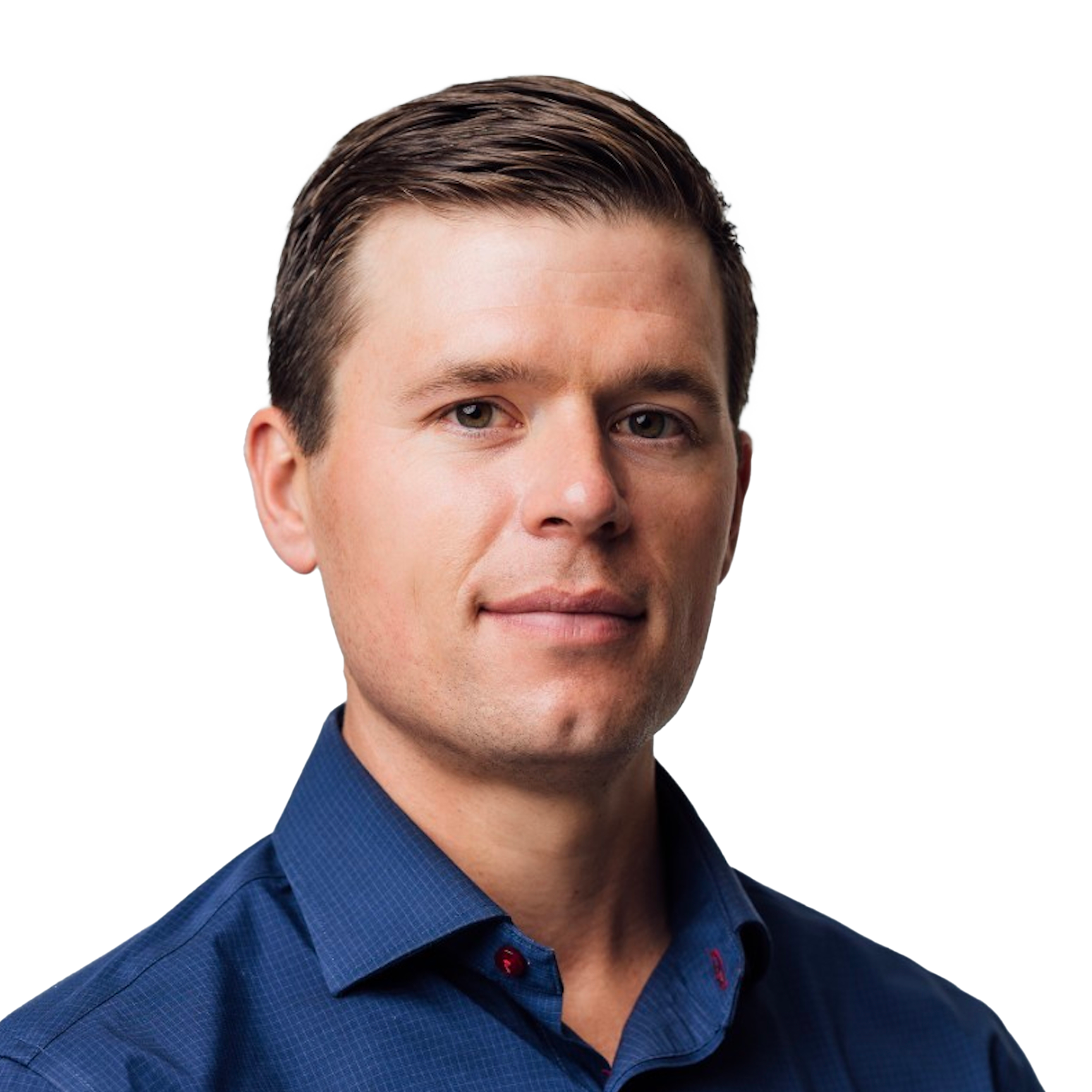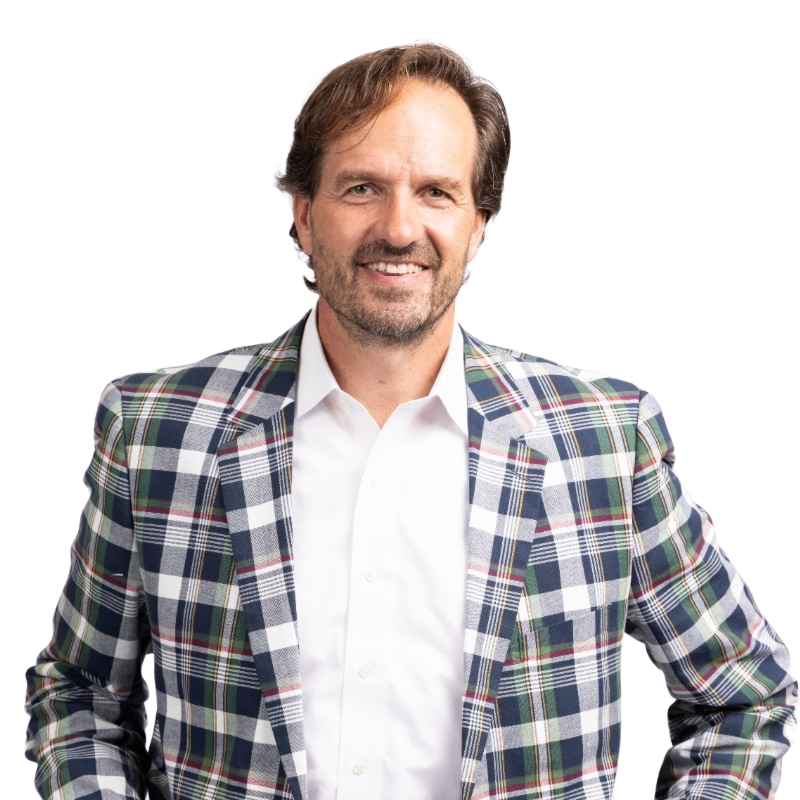
BACK TO PODCASTS
Tracy Lawrence
Executive Coach
|
Love Engine
Episode #
16
In this episode of Path to Growth, Tracy Young interviews Tracy Lawrence about her journey from co-founding the food catering company, Chewse, to becoming an executive coach. Lawrence shares how growing up in a mixed-heritage family and watching her parents run a business influenced her decision to become an entrepreneur. Her love for downtown LA sparked the idea for Chewse, a company that connected people to local eateries, which eventually grew into a venture-backed business. Throughout the conversation, Lawrence reflects on her leadership style and the importance of building a company culture based on love and care. After receiving feedback that she wasn’t “out for blood,” she embraced the idea of creating a love-driven culture, which became a key part of Chewse’s identity. Lawrence also talks about the personal growth she experienced as a leader, noting that therapy and self-awareness were essential in helping her navigate the challenges of scaling a company. She emphasizes that unresolved personal issues can affect professional decisions and that inner work is crucial for leadership development. Vulnerability became a significant part of her leadership approach, allowing her to connect with her team on a deeper level. Now, as an executive coach, Lawrence helps leaders focus on self-awareness, healing, and becoming more effective both personally and professionally.

In this episode of Path to Growth, Tracy Young interviews Tracy Lawrence about her journey from co-founding the food catering company, Chewse, to becoming an executive coach. Lawrence shares how growing up in a mixed-heritage family and watching her parents run a business influenced her decision to become an entrepreneur. Her love for downtown LA sparked the idea for Chewse, a company that connected people to local eateries, which eventually grew into a venture-backed business. Throughout the conversation, Lawrence reflects on her leadership style and the importance of building a company culture based on love and care. After receiving feedback that she wasn’t “out for blood,” she embraced the idea of creating a love-driven culture, which became a key part of Chewse’s identity. Lawrence also talks about the personal growth she experienced as a leader, noting that therapy and self-awareness were essential in helping her navigate the challenges of scaling a company. She emphasizes that unresolved personal issues can affect professional decisions and that inner work is crucial for leadership development. Vulnerability became a significant part of her leadership approach, allowing her to connect with her team on a deeper level. Now, as an executive coach, Lawrence helps leaders focus on self-awareness, healing, and becoming more effective both personally and professionally.
Podcast Transcript
Tracy Young: Welcome to Path to Growth. I'm Tracy Young, co founder and CEO of TigerEye. Today, we are joined by another Tracy Lawrence.
Previous co founder and CEO of Chewse, and now executive coach to discuss all things growth. Tracy, welcome. Thank you. This is so fun to be on this with you. So tell me about growing up. Where were you raised? Tell me about mom and dad, what you learned from them.
Tracy Lawrence: Yeah, so I was born and raised in LA, and I'm mixed, so my mom is Chinese and my father is Jewish.
Which is actually how we came up with the name for the company for Chewse because I was always like mixed heritage I think has always been an important part of my life, but my parents they ran their own company and I told them I would never be an entrepreneur because I hated how much they talked about work Like they talked about work at the dinner table They talked about work in the car rides like to school and from school.
And so I told them I would never do it So that's what I thought I would learn from my parents. But I think funny enough, I have so much of my parents energy that it couldn't help, but start businesses. And then after I started my venture company and sold it, now I have a coaching practice. Like I can't help but start things.
So I think that was probably one of the biggest things I learned from my parents.
Tracy Young: It's so funny. My parents ran a business together too, and they were always arguing all through my childhood about that business. And. I remember looking at them and it's man, I am never going to argue with my spouse about money.
I'm never going to argue with my spouse about work. And then I totally started a company with my partner and this is our second company together. I think the difference is I'm in charge of the money, right? He's in charge of technical. So there's like a clear delineation of responsibilities. It makes for less arguments.
Tracy Lawrence: It's tempting like I think about it with my partner all the time and then I'm like no like you saw what happened with your parents and I think it's totally possible if you have a good communication to do it with a partner I just saw where it went like haywire between them for so long
Tracy Young: So before we get into love engine tell us more about shoes.
Why did you start the company? And maybe, like your biggest lesson learned from the company and why you've decided to now be a coach for other CEOs and founders and executives.
Tracy Lawrence: I started it in college and I love downtown LA, right? So I was born and raised there. My parents company was there.
They worked in the garment. They were in the fashion business. My mom was a designer. My dad did sales. So I would be with them in the office all the time as a kid during the summer, and I would just wander the streets of downtown LA and I loved it. And so when I went to USC, which is based in downtown, I met a bunch of students that hated downtown LA and it broke my heart.
So I was like, no, this is my hometown. And I thought, okay, how do I trick people into loving downtown? I'll get them to eat downtown because we have the most amazing local eateries.
Tracy Young: It's true.
Tracy Lawrence: And that was like the bridge to try to get people to fall in love with my city. And from there, as I started working with restaurants, they all started to ask me about catering.
And they were asking me about student organizations on campus that needed catering. Meanwhile, the student organizations were telling me that they were sick of Subway, they didn't know all the restaurants downtown. And so that kind of was the beginnings of me starting this marketplace, where I would reach out to the restaurants, and I would build menus for the student organizations, and then I just took a cut in the middle.
And so it was actually like a deep love of my city. That I think started the business. Of course I saw the market opportunity and then I met my co founder and I saw it as a venture backed opportunity, but at its core, it was like very much built on that love. And then 10 years later, it became a venture backed business where we were in multiple cities, and it wasn't just about LA.
I have so many lessons, but one of the biggest ones for me was that I didn't realize how closely the personal and the professional lived, like I thought when I went to work, I could leave the personal at the door. And I was like, cool. I am like, I have a work role. I've work face, like this is who I am.
But I started to see as I scaled the company that a lot of shadow followed me. A lot of my history followed me and that history, if I didn't deal with it, if I didn't do therapy, if I didn't do inner work, the history would follow me around and I would start to hire people with very similar shadow to me, or that would trigger my shadow.
So for instance, When I was 10 years old, I was really badly bullied. And it's led me to one of my default kind of modes can be like, Oh I'm a part, I don't feel I belong. And a big part of Chewse was the feeling of we want people to belong over food. I remember someone in my team tapped me on the shoulder when we were working in this big warehouse space in San Francisco.
And they tapped me on the shoulder. And they're like, Can you come into the kitchen? And everybody's there looking at me. And I freaked out like this little girl in me that had been bullied at 10 years old pops out of me and it's Oh my God, they're going to fire me. I don't know why not that they even could, but I was like, they're going to fire me or they're going to mutiny or something.
And I walk over in trauma mode to the table and everybody parts ways and they have a cake on the table. And the cake is a, it's an anniversary cake for me and my co founder starting the It was so sweet and I was like, wow, that is wild that my primary storyline in my head was a negative storyline of me not belonging or me not being included.
And I could throw you thousands of examples like that. But for me, And this is why I started executive coaching. I realized that doing my inner work was going to be the main way for me to scale my outer work. Yes, there are skill sets. There's, I had mentors and I had advisors and I had a board, like frameworks and all that were great, but there was certain pieces of inner work that if I could not move past it, my ego would be greater than my vision.
And I always had to keep those two things under check. I always wanted my vision to be greater than my ego. I had to eat a lot of humble pie. I had to be able to swallow my Eagle, take feedback. Especially when it hurt and it was triggering. And so now as a coach, like I, my favorite part of coaching is to help people do the inner work, to move aside the parts of them.
That come in and say, this is what reality is when it's really their trauma and they're not seeing reality for what it is. And I try to help them move towards presence so that we can make better decisions, as a coaching CEO team.
Tracy Young: This brings a lot of thoughts to mind. I really do think that the key lever we have as leaders is to work on ourselves.
Being physically stronger and having more energy does help as being a founder and a leader because you can take on more. You can take on more pressure without breaking. And the biggest lever we have as leaders is to like, do personal work on ourselves. And I'm so grateful for not only getting to work with really amazing people.
talented and just experienced people over the years and getting to learn from them, but just the pressure that startups put you in that you have really no choice. If you want to survive, you just have to grow as a person. And that starts inside, inside your heart, inside your head. And of course the work itself is really hard and it takes practice and it's work.
I'm still doing after running startups for, 13 years, but I totally agree with the way you think. Okay. Switching gears in an article in Forbes, you shared about a really tough moment with the VC where you invested a lot of time with them only to hear, Hey, this is a tough market that requires a ton of hand to hand combat.
And we don't have conviction in the team because we don't think you're out for blood. It's such an absurd thing to say. Is that I've never thought about my 13 years of being a startup founder and running a business as being out for by of course I want to be competitive, but I've never thought of it as in, in such violent, aggressive terms.
So violent. So yeah. Tell me more about this moment and what were you thinking when you got told this? You
Tracy Lawrence: want to talk shadow work, right? Like it confront, it was so confrontational. Now I will give it to this VC that I think he was saying something that maybe other people would not say, right?
Maybe there were people that felt that along the way. They were like, she's too nice. Like she's too kind, whatever the story was about me. But, and so they go we're just, we don't invest in that market. So I will give him that he was really candid with me. That candor lit up a huge, it was the beginning of an explosion within me.
So I took it, whatever. I took the call professionally. I hung up and then I just cried for half a day in my like tiny studio in Hayes Valley. And it got me asking the very important questions. Which is what am I doing here? Am I out for blood? Do I belong, right? All of the trauma came up.
And I got, at first I was like, I am out for blood, I'm super combatant, blah blah blah. And I'm like, let's be honest, am I really out for blood? I was like, no, actually. He's actually right, I'm not. Because I very much have, this business was born out of love for my city. This business was born also out of my love for food.
I'm Chinese and Jewish. Like, all we do is eat and then talk about our next meal while we're eating. This was always going to be a culture and a service that was born out of the love of bringing people together. And I think once that clicked on for me, It lit a fire within me that I shared with the culture, which is like, why don't we actually, instead of hiding in the shadows and me being like, I'm super competitive, I'm masculine, I'm all these things that a big part of me isn't.
Why don't we just embrace who we are and let's call ourselves a love company. And that's actually exactly what we did as a reaction to this comment and being rejected. And it ended up being our platform, our culture. It helped us raise our 40 million. It eventually helped us get to Foundry Group, which was like total heart and soul alignment.
But it all came out of that very tough moment where the other fork in the road was I quit. I'm like, you know what? I'm not built for tech. This is not what tech is. Which is wrong because I don't think tech is any one thing.
Tracy Young: I really like the judo flip. You're like, you're right. I'm not out for blood.
I'm actually out for love. And in your face, I'm just going to lean into this. And love may feel out of place in business for, that investor and a lot of people. But you said that word several times here in context to business. So why is it so important?
Tracy Lawrence: I spent a lot of time thinking about what love means in the context of business, outside the context of business too.
And it's, so it's morphed over time, but the philosophy that I come to is that loving somebody in a professional context is truly caring about them. It's truly caring about them in a way where they don't feel like they're just a cog in the machine. And so what we ended up realizing was that love had to sit alongside excellence and these two work together.
So somebody wouldn't work hard unless they felt that they were a human and validated in front of you. But you weren't holding anybody to the highest standard unless you did it. Like you weren't actually loving them unless you held them to a standard of excellence. And so sometimes firing someone was a loving action.
It didn't always feel like an act of love, but if they were miserable, they couldn't perform and the company was scaling beyond them and they were miserable. Eventually, you did have to hold them to the high stand and realize this isn't the fit for you. And so in that way, I felt the love culture kind of worked with the next one.
But I also thought that the mission of the company had been so built around love and that care that it attracted a certain kind of person. And it also polarized a certain kind of person. I had people that when I told them about the love culture, how we would talk about our emotions, we would hug each other at work.
They were like, I wouldn't touch that with a 10 foot pole. And I was like, fantastic. Good to know. And then I had other people apply and be like, I will be. any role at the company. I'll do sales. I'll be a janitor. I love this company. So it was, and at first the polarity was uncomfortable, especially as a people pleaser.
I want everyone to love my company. But eventually it was like, Oh no, this is great. Because the people that were on board were really on board. And then there were other people that were like, never in my life. And I was like, good, we should know that in the beginning and not waste time.
Tracy Young: It's a wonderful filter, isn't it?
Just the people who were never going to work, self selected out. Yes. You wrote And very beautifully, I thought, and candidly about how selling your company made you feel like a failure. Tell our listeners more about this, because on the outside, it's very shiny. On the outside, I think we all think that it was a success story, right?
But here's the founder CEO feeling like a failure. So tell us more about that.
Tracy Lawrence: Oh, man. It is. Something that four years out, I continue to grapple with. I only, I think I wrote that just a month or two ago. And the feeling is very much defined by the belief that if you don't return back the venture capital, then you have failed.
So it's a very narrow lens of success or failure based on venture returns. And that was of course you're set up to fail. And especially when I looked at the stats. And I think the stats were like, it was over, let me see, 65 percent of investment rounds fail to return even 1x capital. I was like, oh wait, we are all setting ourselves up to fail as founders if this is the one metric that we live and die by.
But I can say that logically, right? And then I think the logical is helping with it. But emotionally, there's still the sense of, wow, I poured 10 years of my life into this. And I sold the company and I sold it under really rough circumstances because we were going into the sale process. We were actually towards the end of the sale process as the pandemic was hitting and we were B2B.
We sold to offices, all of our offices started shuttering. So the deal on the table basically died. We resuscitated it for a fraction of the value, but it just broke my heart. We had put in, I put in 10 years of work plus the months of work to get this across the finish line only to have it fall apart.
And then we resuscitate it for a fraction. It was just, so there's trauma in that. And then when we sold, we, and a lot of our team was going to get hired by the new company. With the pandemic coming, we had to do it, turn around a layoff in 48 hours. And I couldn't even hug my team goodbye because it was the layoff.
And I know that some of my team looked at me and was like, did you make money from this? Had you been planning this all along? Cause we'd told them, Hey, like we're going to have this great acquisition. Some of you are going to be moving over. So there were all these rumors and stories and there was a lot I couldn't say at the time.
Tracy Young: Yeah.
Tracy Lawrence: And it was devastating. Yeah. And so moving through that. And then eventually moving to Hawaii and becoming a coach, it's been reconciling was that all for naught? And now, something has been reborn out of it, which is beautiful, but I still have that part of me that's no, that feels like failure.
And that's something that I, I work through every day.
Tracy Young: Yeah, just the worst timing. And four years later, it's still hard for me to believe because it happened to all of us that we went through a worldwide pandemic and a worldwide shelter in place and all businesses stopped briefly wondering what was going to happen.
Anyways switching gears. Tell us about Love Engine.
Tracy Lawrence: Love Engine is my pursuit in a single person solo venture now, to be the coach that I really wanted. I think that, I was a founder, so there's a lot that I get, there's a lot of empathy that I get for the process. I have playbooks, I have things to make, to provide leverage as a founder of scaling, but at the heart of it, there's I really wanted someone that could understand how much the personal was professional and to help me do my inner work in order to scale.
But not in just a way a therapist would do it, because therapists often don't understand the founder's journey. They try to, and I think they're wonderful in many respects. But in particular for a scaling founder, there's there's a sense of just wanting to be witnessed on the journey. And I know as a CEO for me and for so many founders, It's hard to share unprocessed truths with people just to get it out, to be witnessed, and to think through it.
Because everybody wants something from you. Everybody has some sort of agenda or an expectation of you to be, like, strong and to have all the answers. And so if you don't have the space, To be able to process your own thoughts, Ron unfiltered. What happened for me as a CEO is that I would lose integrity with myself.
I wouldn't be honest with myself. Then how could I be honest with anyone else? Which is why over the course of Chewse, I had three coaches. I felt it was always important to have a coach. And so now I like to work with CEOs and founders to be that space and then also to hold them to their highest self and to be like, I know when you're at your best, that you give the benefit of the doubt, to that executive or your co founder, like there is something about me holding their greatest self that even when they're stressed, which is most of the time, I can remind them of who they are and then help them with techniques for how to resource and be that best version of their selves.
And ultimately, where I've come to with it is. If I can help leaders heal themselves, then that leadership heals everybody else that works for them, their clients, hell, even their investors, definitely their team. So I want to heal leadership so it can become healing leadership, how I think about it.
Tracy Young: Because they have just an incredible opportunity for influence and impact.
Tracy Lawrence: Whether they like it or not, whether they realize how much their inner world is affecting everybody else's inner world.
Tracy Young: As an executive coach who talks to a lot of founders, what are the biggest concerns you're hearing from founders these days?
Our world is ever changing, there's a lot going on right now. Is there any themes that you could share with us?
Tracy Lawrence: The biggest ones still are the stress and the burnout. Now people don't call it burnout typically, although I do have sometimes people come to my practice and they are at their wit's end.
But it typically comes in the shape of I don't have enough time. Everybody's pulling on me for time. And I actually think the biggest trend line here is a lack of boundaries. Very spongy boundaries among founders because we feel beholden to so many other people and we don't want to let people down.
Sometimes it's because of them. Sometimes it's because of us. It's our image. And I'm a people pleaser. So I am like number one offender for this, but I saw it in myself where I wouldn't say no enough. Or I wouldn't protect my space around strategic and solo time, right? Which for especially for the CEO is one of the most critical spaces we can hold for ourselves.
How do we step back, look at the business, take a bird's eye view and be creative. Founders go, I don't have time for that. I have too many one on ones. I have too many meetings. And it's you say that you have to do this. But you're actually choosing to do this. So let's be clear about the choices that you're making.
So I think it's a, how do you train people to hold tight but not feel like they're selfish? I think there's a big people pleasing streak generally in, in culture these days. And I think actually, you can talk about boundaries all day, but implementing it with your team is it's challenging.
Tracy Young: It's really true. I think a big part of time management is admitting to. What do we have to do because it's part of the job, and maybe we don't like it as much, but what is the stuff that we actually like doing? Like for me, it was always jumping in customer support conversations, and by this point we had I don't know, 15 person customer support team, right?
They didn't need the CEO founder to jump on conversations with customers, like troubleshooting them. But I secretly loved doing that. I loved seeing like where the product sucked, why people were confused. And in the meantime, there was actually real decisions that. Only the CEO can make right and only the CEO would have should be making the space to think about longer term for the company.
Those are the things that I was actually, I actually needed to do, but I made up every excuse under the sun to not do it because it was hard and it hurt. I knew it was painful. I knew that we probably needed a big strategic chef. And it was just easier to go do the thing that I wanted to do instead of the thing I actually had to do.
Tracy Lawrence: Yo, there is something too about, as a founder, following your bliss more, because there's intuition in that. And the more that I see founders separate from their customers, the more I see them on the path to burnout. Because, we build technology companies behind screens and interfaces, right?
We don't get to hang out like in a restaurant. You are with your customer all day, every day. But as a founder, we could be away from our, and in a remote world, like we might not get to shake our customer's hand for years. And that really burns people out, let alone make some less strategic at their work.
And I don't think we often go into building a startup with the idea of, Oh, I'm going to do a lot of the job that I want to do. Like towards the last three or four years of the company, I realized how much I loved doing branding, being the public face of the company and working on culture. And I tried to make that 60 percent of my job, but when it dropped to like less than 60 percent to really 30%, I was far faster on that path to burnout because I was like, I don't love what I do.
I'm human. We have preferences and I think it's okay to express that, but the founder has to feel like I have to do whatever job the company needs of me. True. And you have to acknowledge that only takes you so far in your energy and your capacity.
Tracy Young: How do you think about building team culture? I really loved hearing you say that, that is where you needed to spend most of your time to motivate the team and inspire them.
So what behaviors did you encourage and what did you want to minimize?
Tracy Lawrence: I think the first thing is to jump back to what we were talking about. I think it's important to be polarizing in your culture. Too many cultures are a little bit diffuse. They like, especially in the first place you can see it is when you have 10 values.
Hell, even if you have five values. We got to a point where we would have three, maximum five, but people can't remember 10. They can barely remember five. And I think you stand For a lot less when you say you have 10, because all of a sudden nothing's that important. So I would double down on one or two really important things to you.
And then go extreme on that. Cause everybody says transparency, hustle culture, be resourceful, but that means nothing unless it is the one thing that you really care about. If you care about transparency, have transparent salary, right? Be transparent in your runway, go all in on it and let people know that's what you really care about.
For us with kind of the behaviors that we really cared about, it was, again, it was always under the pillars of love and excellence. And so one of the unique behaviors that we touted was being able to share, we would do color check ins. So instead of asking, how are you, we'd ask, what color are you? And people would say, red, yellow, or green.
And it could be personal or it could be professional. And sometimes, and I always led and I was always the most vulnerable because you as the leader, if you're not vulnerable, nobody else is gonna go to that level. And it would help us really calibrate, where's the whole human today? Because maybe professionally you're green and you're rocking it, but maybe your dog is at the vet and super sick right now.
So maybe you're actually red, and that's the whole human. We're not like mechanisms where we can leave our personal lives at the door. So we would encourage people to have some level of emotional awareness and EQ to be able to share that without going into therapist mode, and we would train people on how to do that.
That's one behavior that we really touted. There was a bunch that we would do trainings on. It's
Tracy Young: so true that one of the reasons Startups and growing a company is hard is because, you've got these really impossible goals and then life doesn't stop. Your parents get sick, your kids get sick, someone's in the hospital, you're someone died, your pet died, whatever it is.
And it's like all this emotion that comes into work at Tiger Eye. Our first core value, I'm sharing this and I think you'll like it. Our first core value is whole heartedness. My co founder mentioned he's I'm not even sure if that's a word, but it is our core value and wholeheartedness means, look, it's going to be hard.
Life is hard, even if you're lucky for all of us. And so work is also going to be hard. And so we expect everyone to bring their whole heart into whatever it is they're doing. If there's something at home or in their personal life, they need to go take care of because it's hard right now. Just log off work, go take care of that.
And then, but once you're at work, we expect you to be 100 percent here to be 100 percent present with your teammates and to solve problems together and to build together. And then there's a time in the day where you're going to log off. And we want everyone to be completely wholehearted in whatever they're doing after work and not checking Slack and not trying to email their teammates because there's a time for that in the morning, right?
And it just helps us out with. The feeling of overwhelm because I really believe that it's when we like try to split our attentions and so many directions at the same time That's when it feels extra hard.
Tracy Lawrence: And what I love about that value is it is a value that is grounded in reality, you know when we think about toxic positivity and it's oh, have work, be joyful all the time. I think we could probably do better as a culture to bring more joy to work. But that's not, life doesn't work that way. We're not always one or the other. And I think the whole heartedness is basically saying, look, sometimes it's going to suck and let's embrace that too as part of the human experience, which also appeals to me very much in kind of a Buddhist sense of let's turn towards reality.
What is reality showing us? And if you're having a bad day at work, that is what is real. You don't have to resist it more. They call it the second arrow in Buddhism, right? Like you have the first arrow of you lose a client and then you shoot yourself with a second arrow because you're like, Oh God, what did I do?
I should have done this. I should have done that. Let's just turn towards reality, learn what we have to from it. And, and then take that as it is.
Tracy Young: Yeah, there's this wonderful Jack Welch coach, although I think the Gen Z is like a mix on Jack Welch, but I quite like his quotes. One of his quotes is, Base reality as it is, not as it was or how you wish it to be.
That is, that is exactly what you said in Rooted in Reality. It sucks. It's true it sucks right now, but there's no point in wishing about the past or wishing what it should be. It's just, what are you going to do right now in this moment about your reality? And this is,
Tracy Lawrence: I think, what I've learned about coaching is that coaching is training.
People and using conversations, training people to turn towards reality, especially as opposed to stories. The biggest thing that I see and identify in the coaching practice is like a situation boils up. And it's deeply woven in, not just with the data that a camera could record, but the story of what it means.
And I get sucked into this too as a coach, where it's oh, we build, then we build our response based on a story. And sometimes it's whoa. Let's take a step back. What's the data on the table? It's not that she wants a raise, but she hasn't said anything, or she's angry at you, but she hasn't said anything.
Let's look at the data of the behavior and the actions and the world as it is today. And then we'll set the story aside and we can revisit that later. And when we look at that, it's actually That training is so powerful, and so much easier to work around. But humans are storytelling machines. And the danger is, our stories are not always wrong.
Sometimes we're good at storytelling, but sometimes we're wildly off. But because we're good a certain percentage of the time, we continue to do it. But it's just all abstractions from reality. And one thing I've learned with psychedelic integration work is that psychedelics often teach you to take off the lenses that you don't even realize you're wearing.
And all of a sudden you look at the world, you're like, Oh, I didn't realize the world was this color. I thought everything was green. I thought everything was red. And so all of this coaching psychedelics, every modality we use, it's just training on how to turn towards reality and be with it as it is.
Tracy Young: Trust in leaders can be made or broken when things get tough. What's your advice for leaders who are dealing with what feels like a crisis right now and it feels so impossible and they are experiencing burnout and they just spitting the wheels, not sure what to do. What's your general advice for them?
Tracy Lawrence: I think about trust is something that oftentimes when we have a big fallout of trust and we turn around and let's say it's with our team, right? We do a layoff. Layoff is a great way to breach trust with the remaining team. And we turn towards them and we go, this is never going to happen again.
Or we make huge promises that are equal to the fallout of the trust. That's probably the worst way to reestablish trust. So what I find is that if there is trust, either externally that you've had a fallout with or internally, right? You have broken trust with yourself. Which is often times on the path to burnout is true.
The best way to address that is actually to start small. And to make very small commitments. And say, look, I know that we had a layoff. And that was rough. And this came on the heels of us not sharing runway. This week, at the end of every week, we're gonna start to do runway check ins with the team.
And start to be transparent. Okay, it's a little thing that you add. It's obviously a big decision, but a little thing. Then eventually you can start to say, okay, now, as we start to meet our goals, we as a leadership team are going to be telling you how we're genuinely feeling about the goals, right?
Okay. More vulnerability. And eventually you start to make medium term commitments and then you follow through on those. You can start to make big commits and follow through on goals. I think there was a book on it that may have been called the speed of trust. that talks about this in an amazing way, but it's basically how you can heal that and do the repair work without the huge weighty expectations.
It's start small and make those commitments, go medium, nail those commitments, then people can start to trust you on the bigger ones. But it, there's a velocity as well to trust. You make it, you share it clearly, and then you meet it. That builds a beautiful kind of virtuous cycle and upward spiral.
Tracy Young: Right, and consistency and follow through is key here.
Tracy Lawrence: Yes, which is why you want to start small, so that people, ideally on the daily, you can start to make small daily commits that you keep. That means way more than a massive commit that's going to take years that people don't get to see you follow through on.
Tracy Young: I remember when it, every time it got hard, I'd open up just open office hours for anyone in the company to, just 15 minutes, 20 minutes just to talk through their concerns, ask me questions about, the business.
Tracy Lawrence: Yeah. Let them see you as a human.
Tracy Young: Yeah. Yeah. And I remember really taking every feedback to heart and, and now that I think about it, I was.
Keeping that cadence of you just told me this problem. I totally agree with you. I didn't see it before, but let's do something about it. And just showing that like us as a leadership team, we can change and we can adapt and we can listen. And I think it made us a stronger team. Thanks for sharing that. So let's think about Tracy Lawrence, let's say 10 years ago, maybe even more than that. So let's just go back a little further. So let's just say 2010, just for the sake of time, 2010, wherever you were in your life, what would you tell yourself at that point? If you go back in time and just tell her something about the startup journey, about being a leader that would help her along the way, what would you tell her?
Tracy Lawrence: Yeah. There's two things. One of them is that it takes a village to start a company and to, I would arm myself with those resources of a therapist, an advisor, a coach lean on my co founder if you have a romantic partner, but assemble your resources because it takes a freaking village and there's no shame to that.
Now. As I coach, I see that there's like this trifecta around the top performing CEOs that I work with, where they have a coach, they have a therapist and they have a trainer. And that's the core of it on top of maybe, they have somebody cooking meals if they can afford it, or they have a great co founder or they have a, a good partner, but like that trifecta is magical.
And I don't think CEOs talk about that. There's often this. Guys that oh, I know it all and I have to figure it all out. And I want to take that off the pedestal, which is no, we don't have all the answers. It's okay not to have all the answers, build a support system so that you can have the resources to figure out what those answers are.
That's the first thing. I think the second thing that I'm now understanding more as a coach working with CEOs is I would tell myself to pay attention to where I am energetically before I practice any speech, before I write any copy, before I go into any pitch I used to spend a lot of time. Let's talk about fundraising.
I would build that deck to perfection. I would spend weeks on that deck. But I wasn't focusing on energetically. How do I want to show up for those meetings? Like, where do I want to be? And now that I support founders with this, classic examples, all of the founders come to me and be like I'm about to have a difficult conversation.
What do I say? And in the beginning we used to hammer out the script together and then they'd practice it and they'd practice it. And then what we started to realize was screw the script. How are you feeling as you talk about it? What is the state that you want to be in when you talk about it? And then you, and then that question softens the founder to go, Oh God, I need to be in like a really open, honest state here, or I need to be in an empowered state, but I feel like a victim.
And so we actually focus on what's the state that you want to shift and what's the energy you want to be in. And then from there, the script fucking flows. What you need to say flows like perfection out of your mouth when your energy is aligned. And so I would pay much more attention to that, which is not this is much more intuitive way or even feminine way, I might argue of doing business where you focus more on the energy and the mindset.
Men have access to this too, but we're just not trained to do it. We're trained to have a good script, to follow a protocol in the black and white, but I think there's a lot of gray and a lot of wisdom. comes from being in the right mindset when you're fundraising, and then the pitch just flows.
Everything flows so much easier.
Tracy Young: And you don't have to be out for blood to be successful.
Tracy Lawrence: The moment that I could get in flow with like Foundry Group, okay, we had we were 30, Two pitches in of our series a everyone had said no And we sit down for lunch and boulder and brad fell just looks at me and he's So tell me what you want to build and I was pretty much convinced We were going to get another no and we were going to shut down So I was like fuck it like so the attitude I wasn't thinking about it then but my mindset was you know, what?
I don't actually care as much about what other people think of me as I do about the truth of the situation and what I want to build, whether it happens or not, that allowed me to disconnect from any kind of like weird Ooh, I've got a pitch and make it good for, the way that it looks to him.
And I was just like, Hey, I want to build a love company because here's how I see the world. And former me would have cringed. No, don't tell investors that they want you to be strong and whatever. And when I told him that, it was like by the end of that conversation, they were ready to invest.
And I was like, Oh, cause my energy was aligned. I had to prep that pitch, that script at all.
Tracy Young: Thanks for sharing that. I love that. Tell us about one person who's helped you become who you are today. Is there that one person that you can share? My co founder.
Tracy Lawrence: Yeah, I think so. I met him when I was 20 or 21.
And he was one of the people that first off he was like, this can be a venture backed business. And I was like, really? He's yeah, you can raise money for it. Like he infused me with this belief to go bigger and to believe in myself. But even more importantly, he was the first person to tell me that it was okay to cry and like to have emotions about work.
And I remember sitting in our office and we were within like, I don't know, eight weeks of running out of money. Before prepping for a fundraise and he looked over at me and he saw my face was dropped and he's you want to go for a walk? And I was like, yeah, and we're walking around Soma and I just sit down on a stoop somewhere and I just start sobbing and he puts his hand around me and he goes, It's okay to cry.
Yeah. And I was like, what? No, like I'm CEO. I'm not supposed to cry. I'm supposed to be strong. And he's no, like you, you're afraid to stop working with these people. Of course it's sad. You care about them. And I was like, I do. And he's maybe you should share it with the team. And I was like, that's horrifying.
I would never share this with the team. They would all leave. And then, because of his prompting and by an act of God, later that day or that week when I gave an all hands, I told the team exactly that. And because of that one talk, there was like barely a dry eye in the room. Everyone came up afterwards and hugged me and nobody left during that period when we were really coming down to the wire and they knew it too.
And so he fundamentally set me up to have an authentic, vulnerable leadership style. And I say that he spiritually reparented me. Like I think he is absolutely the bee's knees and he's amazing. Yeah, he's dear to me even to this day
Tracy Young: Oh, that is really special. I had a lot of co founders at my last company and started this company with my partner second time Wow, and as you were talking I was like, you know these guys They believed in me before I even believed in myself.
And every time it got hard, they had no doubt that I could do whatever it was. just go do it. You've done this before. Don't worry about it. Why are you so stressed out? Why are you scared? Just go do it, Tracy. Wow. And and it was helpful. I just needed to hear that. I just needed to see it in their eyes that they truly didn't care.
They didn't, they weren't scared. They weren't worried in the same way I was. And just seeing their confidence in their eyes. Just somehow rubbed it off on me and made me confident in all those moments
Tracy Lawrence: It's so powerful to see that mirror right of somebody's confidence that helps you rise to that occasion That's so profound.
I Fully feel you on that.
Tracy Young: Any Last piece of advice you would just want to share with our listeners, they're all ambitious they're all many of them are women some of them are men and You They're trying to make it work with light and with work and they're all ambitious professionals.
What's the advice you have for them?
Tracy Lawrence: We touched on storytelling and some of the downsides of storytelling, but if we're to accept, let's turn to the reality of the situation that humans are storytelling machines. We at least to tell stories that gives us comfort in a world that is gray area gives us black and white.
I think there is another skill set here, which is. How do you tell stories that serve you, that are in your favor? And I remember in particular when I was fundraising, And, I had mentored and also just pitched alongside women that were really scared about being women and fundraising. And in the beginning of my Series A, I like started to dress like one of my male mentors and I was, I'd wear Converse and like T shirts and jeans and that wasn't what I normally wore.
If that's what you wear, great. But I was trying to be androgynous and it's yeah, like that wasn't going to happen. Like people knew I was a woman. What I started to get to was like, I started to tell myself the story that actually everybody wanted to see a woman in their portfolio.
That actually there were people that wanted women to be successful and to represent. And as I started to tell myself that story, I started to find more pieces of data and evidence that would support that story. And it fundraise. Because fundraising is hard enough, When we tell ourselves these stories of all the ways that like, people don't want us to succeed.
So as I started to shift it and shift the narrative, it started to just, the world began to mirror my story. And I think there was some truth to that. You could call it manifestation. You could call it quantum entanglement, but I found that worked in my favor. And again, of course we don't want to have those stories way overlook reality.
If you get a sexist comment or someone is overstepping their boundaries with you, you obviously have to always have your tight boundary, behind that story, but maybe try telling yourself a story. That's going to be awesome if the universe aligned with it. Founders were so paranoid. We're always thinking about the worst case scenario, right?
Sometimes you can quiet that engine or stop feeding that wolf and try to feed a different wolf. The one that sees like the best version of your future, even just give it a few minutes to be like, okay, I've thought about all the 10 ways that the startup could explode. What are the two ways that the startup would be amazing?
What are the two ways that this initiative would put us on the mat? Give it a little bit of thought and the more thought you give it, the more it expands in your worldview.
Tracy Young: I think that is incredible advice. Like how do we open up our minds and. Have a wider perspective or even a completely different perspective and how does that just affect?
Whatever it is we're doing in trying to solve
Tracy Lawrence: right and our reality To you right because the moment you shift your perspective your reality changes around you and like I don't know I'm obsessed with truth and what truth is and what reality is I haven't come to any complete answer on it But I do find the more that I seed myself With different ways that I want the world to be the more that the world responds and kind it's very odd
Tracy Young: Tracy.
Thank you so much for joining us today. I love your unique perspective I always loved your vibe and energy and I know our listeners could feel it too. Thank you.
Tracy Lawrence: You're so welcome Thank you for having me

.png)













